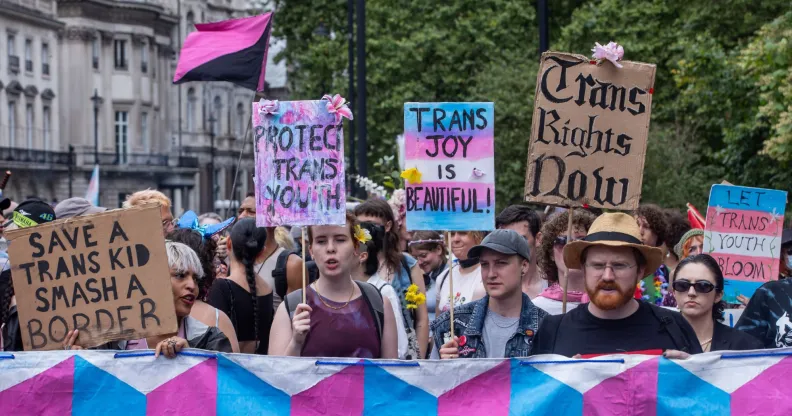Transgender Europe (TGEU) has recently unveiled its 2023 Trans Rights Map, providing a stark assessment of the legal situation for transgender individuals across 49 European countries and five in Central Asia. The map employs a color-coded system to rank countries based on 30 indicators across six critical legal categories: legal gender recognition, asylum, hate crime/speech, non-discrimination, health, and family. The presence of more indicators signifies a better environment for trans rights.
At the pinnacle of the list stands Iceland, boasting 26 out of the 30 indicators, underpinned by legal gender recognition, progressive asylum policies, and stringent hate speech laws. In contrast, the United Kingdom finds itself much lower on the scale, securing only 14.25 out of 30, positioning it closely alongside Ireland with 13, the Netherlands with 15, and Portugal with eight.
The data, encompassing a decade of analysis, unveils a disheartening decline for the UK, which has shifted from being a progressive leader in 2013 to a nation marked by widespread anti-trans sentiment in both media and government circles. Freya Watkins, a research officer at TGEU, highlights the importance of bridging the gap between legislation and implementation, particularly in safeguarding trans asylum seekers.
This dim ranking comes on the heels of anti-trans rhetoric at the Conservative Party conference, with Prime Minister Rishi Sunak and Health Secretary Steve Barclay making contentious statements. The UK has also faced delays in implementing a conversion therapy ban, citing concerns about its effectiveness.
Further exacerbating the situation, government data reveals an 11% increase in transphobic hate crimes in England and Wales, amounting to 4,732 recorded offenses for the year ending March 2023. The Home Office acknowledges that some of this surge may be attributed to anti-trans sentiments within political circles.
In a broader context, the International Lesbian, Gay, Bisexual, Trans and Intersex Association’s 2023 Rainbow Map paints a bleak picture for LGBTQ+ individuals, with the United Kingdom slipping from 14th to 17th place in European safety rankings. Amidst these findings, it becomes evident that concerted efforts are needed to address and rectify the plight of trans individuals in the UK and beyond.

